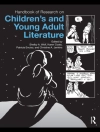Originally published in 1890, The Journal of Sir Walter Scott spans seven eventful years of the author’s life where he attempts to reclaim his good standing. It’s a revealing look at the highs and lows of one of the greatest novelists of all-time.The Journal of Sir Walter Scott starts in 1825 when the author is 54 years old. It recounts a seven-year stretch of financial strain caused by failed business ventures and defaulted loans. Scott details his struggle to maintain his dignity, while losing his status and possessions. He recounts personal traumas linked to the death of his wife in 1826, as well as his own declining health. It is a riveting exploration of the author’s final years. The Journal of Sir Walter Scott is considered a masterpiece of candid writing. Scott bares his soul as he navigates several unexpected obstacles. In the midst of his anguish, he maintains a sincerity that makes for a refreshing and reflexive read. With an eye-catching new cover, and professionally typeset manuscript, this edition of The Journal of Sir Walter Scott is both modern and readable.
Since our inception in 2020, Mint Editions has kept sustainability and innovation at the forefront of our mission. Each and every Mint Edition title gets a fresh, professionally typeset manuscript and a dazzling new cover, all while maintaining the integrity of the original book.
With thousands of titles in our collection, we aim to spotlight diverse public domain works to help them find modern audiences. Mint Editions celebrates a breadth of literary works, curated from both canonical and overlooked classics from writers around the globe.
Om författaren
Sir Walter Scott (1771-1832) was a Scottish novelist, poet, playwright, and historian who also worked as a judge and legal administrator. Scott’s extensive knowledge of history and his exemplary literary technique earned him a role as a prominent author of the romantic movement and innovator of the historical fiction genre. After rising to fame as a poet, Scott started to venture into prose fiction as well, which solidified his place as a popular and widely-read literary figure, especially in the 19th century. Scott left behind a legacy of innovation, and is praised for his contributions to Scottish culture.












